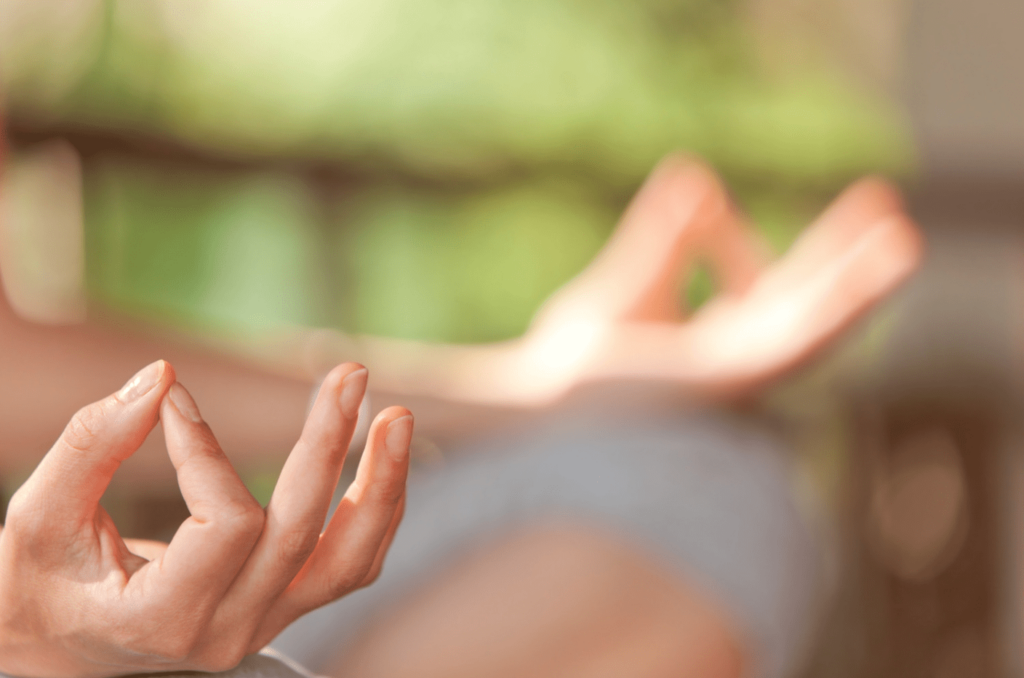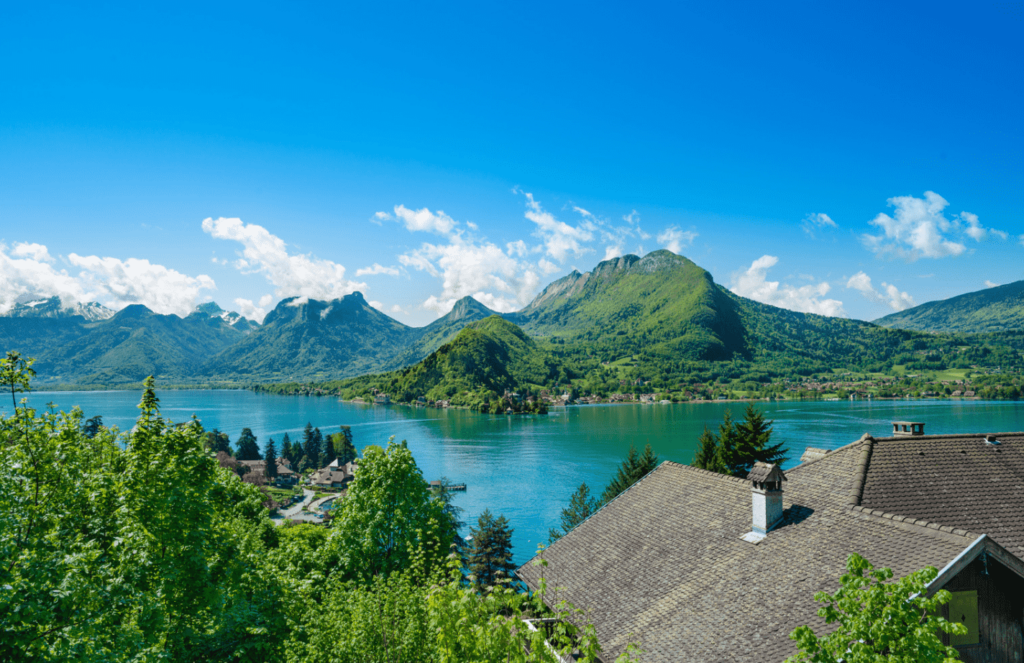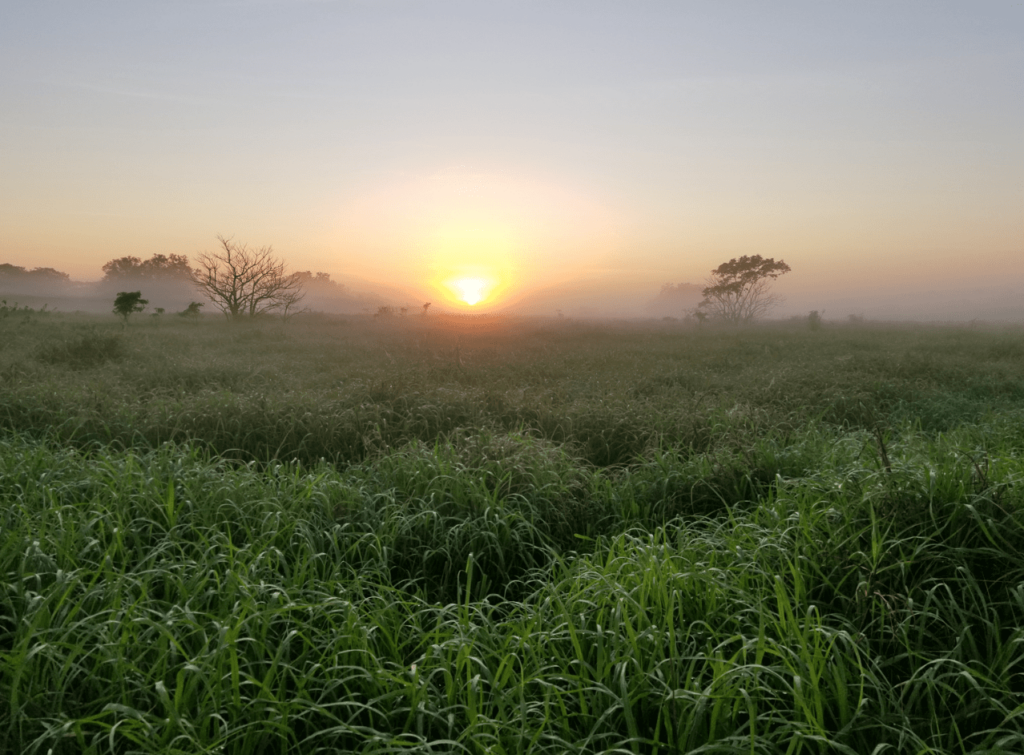In a society connected and afflicted by social media, stillness is valued more.

The monk’s soft voice ebbed as he rang a big bronze bell, the first of three “dings” telling us to sit. One final look at the September dawn on the Buddha altar’s magenta flowers gave the dimly lighted chamber character. In the Great Togetherness Meditation Hall, fragrant incense and golden sunlight produced a serene atmosphere. A calligraphy banner over the altar said “This Is It” to remind me that we only have the now.
The banner said Zen teacher Thich Nhat Hanh (“Thay”): “Our true home is the present moment.” This was my final day at New York’s Blue Cliff Monastery. The monastery, in the Catskill Mountains two hours from New York City, is one of 11 worldwide mindfulness centers founded by Thay, a Zen Buddhist monk banished from Vietnam in 1966 for opposing the war. Thay pioneered Engaged Buddhism and mindfulness in the West, described by Martin Luther King Jr. as “an Apostle of peace and nonviolence”.
In the company of dozens of monks, nuns, and retreat-goers, I finally felt at home.
I closed my eyes, breathed deeply, and nestled into my cushion with the third “ding”.
Mindfulness retreats, from Buddhist meditation to seaside yoga, are growing more popular as individuals want to disengage. “We’re seeing more people wanting to host retreats – they’re becoming mainstream,” said Danyasa Eco-Retreat owner Sofiah Thom in Dominical, Costa Rica.
Blue Cliff Abbess Sister True Vow told me retreat guests inevitably cite social media as a distraction. “The number one answer to ‘what is pulling you away from your daily life and one another?’ is ‘social media and smartphones’.”
Sister True Vow: ‘What is dragging you away from your everyday life and one another?’ is’social media and cellphones’
The typical individual spends over 2 .5 hours on social media daily, and there are five billion users worldwide.
A new UC Davis investigation found that social media has a “dark side” that causes anxiety, melancholy, and loneliness. In June, the US Surgeon General recommended a social media warning label for teens. Dr. Edward Brodkin, University of Pennsylvania associate professor of psychiatry and neuroscience, says, “Social media affects everyone. It keeps us glued to screens and away from others.”
I lose concentration easily due to urban living, smartphone alerts, and social media as a traveler who has always lived in busy places like New York, London, and Montreal. This was my seventh Blue Cliff retreat since 2016, and the solitude and introspective talk always revitalize me and help me be present. After 14 hours of silence, monastics teach retreatants how to be present in small groups. On and off the cushion, simple gathas like “breathing in, there is only this present moment; breathing out, it is a wonderful moment” concentrate attention.
Mindfulness retreats help us develop present-minded behaviors. These may include meditation, yoga, spiritual contemplation, or health and wellbeing. They all include solitude, good food, mentoring, breathwork, and nature and are becoming more popular as people pursue better lives.
Allied Market Research predicts that the worldwide wellness retreat market (including mindfulness retreats) will quadruple by 2032 to $364bn, driven by stress, wellness awareness, and a “desire for digital detoxification”. Condé Nast Traveler’s 2024 top trend was silent travel due to its “promising implications for wellbeing”.
People want to be in a beautiful place and acquire life skills, not simply relax on the beach with a margarita – Sofiah Thom
Thom, who has been arranging Costa Rica retreats since 2008, says her clientele has grown since the outbreak as people prioritize their health. “People don’t just want to sit on the beach with a margarita anymore, they want to be in a beautiful setting and learn tools to help them in everyday life.”
Mindfulness meditation improves our emotions and bodies. Meditation helps decrease stress, bad moods, creativity, and patience (a must for me), according to the Mayo Clinic. Meditation regulates stress hormones, says Brodkin. It builds circuits in the frontal lobe that help us control our thoughts and emotions.”
He published Missing Each Other – How to Cultivate Meaningful Connections with psychologist Ashley Pallathra to help people develop attentive awareness while interacting with others, which is crucial in the digital age. “There is something addicting about social media and the internet, and mindfulness practices get us away from screens.”
I joined monks and retreaters on a post-lunch walking meditation in the beautiful woodland on the final day of my September Blue Cliff retreat, phone off. Silence let me notice nature’s synchronicity and enjoy it. As I watched the sun’s rays illuminate the water, my thoughts quieted. We created a deep feeling of tranquility that connected with nature, and a fawn approached us.
Like Lutz, I like stillness in mindfulness and have attended retreats that emphasize it. Benedictine Abbey Abbaye de Saint-Benoît-du-Lac is in Quebec, across from Vermont. Although famed for its savory cheeses and cider, the Abbey also conducts calm retreats. I just attended a weekend retreat inspired by their Gregorian chant masses to disconnect, de-stress, and practice mindfulness.
Abbey monk Father Garand said retreats help because they break up routines. He stated “there’s a physiological atmosphere of serenity, and people connect with that” at the Abbey. Latin mass’s live Gregorian singing and aromatic incense evoked Blue Cliff’s meditation hall’s tranquility.
In a society connected and afflicted by social media, stillness is valued more. Spiritual or otherwise, retreats provide a chance to relax and form healthy habits, but how can you carry them home? Keep the pledge “clear and simple” and locate a supporting community, says Sister True Vow. While I attempt to meditate daily, the serenity reset at Blue Cliff and Abbaye de Saint-Benoît-du-Lac keeps me coming back for weekend retreats at least once a year.
After walking meditation in the Blue Cliff forests, we passed a calligraphy sign at the monastery gate that said, “I have arrived, I am home,” reminding me of Thay’s teaching that our home, our tranquility, is in the present.


